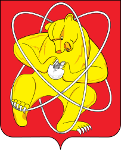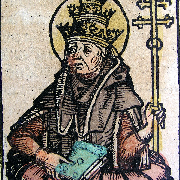|
Arglebargle III posted:I know I'm supposed to be posting about the Han dynasty but I started watching Rome yesterday and did Octavian really get captured by Gauls when he was 13? Arglebargle, thanks for the write-ups on ancient China so far! When you get to the Han/Tang interregnum - can you focus a bit on why it was exactly that China was able to re-unify and come together again under imperial authority whereas Europe post-Rome was not? The best answer I can come up with is that nobody was able to establish themselves as a permanent power (or, if they looked like doing it, they bankrupted the country building a canal and invading Korea). But what was different about the Tang that they were able to conquer all of China again and found a new dynasty? Also, do you have any recommendations for books on the history of imperial China? I've worked my way through the Oxford History of the United States - do you know if there's something similar for Imperial China?
|
|
|
|

|
| # ? May 26, 2024 16:39 |
|
There's the Cambridge history of China. It's 13 volumes and the one covering the question you mentioned has been delayed for what seems like forever.
|
|
|
|
China never collapsed completely the way that the western Roman Empire did. They went from three kingdoms, to one big kingdom and some little kingdoms, to two big kingdoms, to a different two big kingdoms, and then were unified by the Sui. And this was over 400 years. It wasn't exactly peaceful and quiet but it's hardly the total breakdown into warring tribes that you saw in the West. The Sui followed the pattern established by the Qin and Han; one big push to conquer the whole country followed by that force exhausting itself and a more moderate group picking up the pieces and getting everything working together. As I said there are some dynasties that nearly made it into the canon but didn't. The Jin dynasty between the Han and Sui is one of those. They didn't last particularly long but they did unify the country from about 250 to 315 AD. Then they lost their northern territories and their shot at inclusion in the canon of dynasties despite continuing to exist for another hundred years. Traditional Chinese historiography is full of questionable and problematic stuff like this. Arglebargle III fucked around with this message at 08:04 on Oct 17, 2013 |
|
|
|
Readman posted:Arglebargle, thanks for the write-ups on ancient China so far! I think the big thing you're running into here is a bit of a Europe=normal syndrome. No offence, but it reads as 'not like Rome, ergo, anomalous!' I know this is the Rome thread and all, but still. Partly, I think there is that 'China is special because our dynasties narrative' which is always useful for whatever dynasty wants to point to the past and go 'so you have to do what I say.' Basically, there's this thing called The Romance of the Three Kingdoms which was the big post-Han (well, also puppet-Han, but effectively post-Han) dust up that lasted a good long while with waxing and waning. Like, you can say Europe 'reunited' under Charlemagne, or the Hapsburgs, or with the EU, or when the ruling families all realized that working together to loot other continents/keep down dirty republicans that Europe did reunify. Or, you know, the Byzantine Empire kept its poo poo together so well it wasn't even the Byzantine empire. It's just that Rome as Fallen and China as CHINA, YES EVEN THE TIBETAN AND UIGER AND CANTONESE BITS AND LETS ALL IGNORE HOW THE MANCHUS AREN'T REALLY CHINESE AT ALL are/were the most useful narratives around the time history started to cement itself. Basically, the Tang lucked out and rode in on the coattails of the Sui a lot like the Qin => Han transition. One group rolls in as big enough dicks to conquer but not consolidate, a second dynasty picks up the pieces. Like, the Sui Emperor got offed by his advisers and the first Tang Emperor was a powerful, eh, call it Duke. If you look past the Sui/Tang dynasty name shift, you can basically see that the Sui were able to establish a 'permanent' power. E: A comparative Chinese textbook is going to be HUUUUGE. The USA is so young, relatively.
|
|
|
|
the JJ posted:I think the big thing you're running into here is a bit of a Europe=normal syndrome. No offence, but it reads as 'not like Rome, ergo, anomalous!' I know this is the Rome thread and all, but still. Partly, I think there is that 'China is special because our dynasties narrative' which is always useful for whatever dynasty wants to point to the past and go 'so you have to do what I say.' Basically, there's this thing called The Romance of the Three Kingdoms which was the big post-Han (well, also puppet-Han, but effectively post-Han) dust up that lasted a good long while with waxing and waning. Like, you can say Europe 'reunited' under Charlemagne, or the Hapsburgs, or with the EU, or when the ruling families all realized that working together to loot other continents/keep down dirty republicans that Europe did reunify. Or, you know, the Byzantine Empire kept its poo poo together so well it wasn't even the Byzantine empire. It's just that Rome as Fallen and China as CHINA, YES EVEN THE TIBETAN AND UIGER AND CANTONESE BITS AND LETS ALL IGNORE HOW THE MANCHUS AREN'T REALLY CHINESE AT ALL are/were the most useful narratives around the time history started to cement itself. That's a reasonable point. I don't know much at all about ancient Chinese history, and I suppose I was using Rome mainly as a reference point.
|
|
|
|
You can see here just from Wikipedia: China is divided after the Three Kingdoms..? Eh, I guess they didn't grab the western half of the North China Plain so the Sui and Tang imperial historians didn't include them. Well, surely the Jin will get their due if they just hang on for oh say, another 100 years.  100 years later and they're still kicking, but what's this? They lost the Yellow River? Well, into the dustbin of history with you! We'll just tell everyone that China was in chaos for 400 years. On a related note, China doesn't really have a concept of "official history" because history has traditionally been the province of official historians. China has a word, "wild history" for history written by anyone not officially appointed as a court historian. Which gives you some idea as to how skewed and problematic historiography gets canonized. Not to say that the Western tradition is necessarily better, but it's certainly freer to express unsanctioned views. The Jin go through a very similar territorial history to the Song, who are a canonical dynasty, but they aren't allowed in. Just shows how unfair and misleading history can be. Arglebargle III fucked around with this message at 08:25 on Oct 17, 2013 |
|
|
|
To be fair, if the three kingdoms period counted as "chaos", then surely a 6-state China with a rump state comprised largely of non-"chinese" people wouldn't be far off?
|
|
|
|
I imagine it also helps that most of the time, even when China split up or was conquered, the new leaders proceed to make use of the same governing apparatus anyway. It gives the people a sense of continuity, even if the guys at the top change.
|
|
|
|
Except the mongols who were quite oppressive. they were probably the most disruptive rulers until the Republican era.
|
|
|
|
So I'm still watching Rome and there's some sort of lesbian relationship going on between Sevilla(?) and Octavia. Do we know anything about how this sort of relationship was treated in Roman life? All I've ever heard is about dudes.
|
|
|
|
The only shameful sex I think in Rome was being a man and being penetrated.SeaWolf posted:Wikipedia explains a lot better than I can with the mess I had written here first, but the gist of it is that Yahweh may have been worshiped as a national god in the south of Canaan and as more of them, Edomites, migrated north, they brought that worship with them and you begin to see a lot more interchangeability between El, the chief of all gods, and Yahweh. When the Assyrians destroyed the kingdom of Israel the ancient Hebrews had this idea that it wasn't the strength of Assyria's national god that brought destruction over the weaker Yahweh. They begin to elevate Yahweh even higher to the exclusion of other gods, and it was Yahweh using Assyria as a tool to rain punishment over Israel. That's kind of the quick and dirty, I'm outta time since works over but that's the gist of it. That is fantastically interesting. How neat it is it that the Torah still contains vestiges of polytheism.
|
|
|
|
euphronius posted:That is fantastically interesting. How neat it is it that the Torah still contains vestiges of polytheism. Yep. It's easy to miss but the Old Testament/Torah makes it very clear that Yahweh is not the only god, but he's the only god the Jews are allowed to worship. The monotheist thing comes well after the religion begins. And even then, there's the whole argument about the Trinity and saint veneration and all that poo poo that has been going on since day one.
|
|
|
|
Amazing thread  I have a question that I don't think has been asked before, or I might have missed it: I have a question that I don't think has been asked before, or I might have missed it:What was the spread of early Christianity really like? The "standard teaching model", so to speak, gives us the great persecutions under Nero, then sporadic pogroms of Christians who are still a persecuted minority, then suddenly in the 4th century we have Constantine, the Council of Nicaea, and the religion explodes. But obviously it was a significant movement already by 312, and a potential powerbase for the Emperor. Still, I have only an extremely vague idea of how it went from point A to point B. It's a running debate between me and my dad; despite being an atheist he's really pro-Christian, philosophically speaking, and insists that it was the sheer moral force of the teachings that accounts for JC's initial popularity. Personally I think this is waaay too idealistic. Which social and ethnic groups were most commonly adopting Christianity before Constantine? What was the main device of transmission of the religion - texts, wandering preachers, community outreach (so to speak) or what? What are the current theories on why it ended up more successful than other mystery cults?
|
|
|
|
Arglebargle III posted:So I'm still watching Rome and there's some sort of lesbian relationship going on between Sevilla(?) and Octavia. Do we know anything about how this sort of relationship was treated in Roman life? All I've ever heard is about dudes. The legendary sexism of Roman society means we almsot never hear about women unless they are model matrons, high class strumpets, or evil stepmothers. Lesbians existed, although, like gay Roman men, its highly probable they still married the opposite sex since that is just what you did. There are some spotty references to them, and a few snippets of love poems from women to other women, but compared to what we know about male homosexuality, its rather sparse. Humans have not changed all that much though, so its safe to assume there were plenty of Roman lesbians getting their sex on. From googling this just now, the Greeks are hilariously off the mark in their assumptions about lesbian sex. Since sex obviously has to have a phallic component, according to the Greeks (men) one lesbian would have to use a dildo or have a huge clitoris in order to penetrate the other woman, and thus be the one who got pleasure. Since obviously only the penetrating partner experiences sexual pleasure. Also oral sex deos not exist. I love that for all their logic, the concept of just asking someone how this works is compeltely ignored. WoodrowSkillson fucked around with this message at 16:02 on Oct 17, 2013 |
|
|
|
euphronius posted:The only shameful sex I think in Rome was being a man and being penetrated.
|
|
|
|
The upper classes at least did, though I think its safe to assume that just like they also abhorred slaves and gladiators yet hung out with them cosntantly, they also participated in oral sex just as often as everyone else.
|
|
|
|
Considering the Romans had separate words for the person who does the sucking (fellator, from which we get the word fellatio) and the one getting sucked (irrumator, which as far as I know doesn't have a modern equivalent) I'd say they liked oral sex just fine. On a related note, how was political and social power distributed in Etruscan society in terms of gender? I've always heard the Etruscans had very modern views about women but I don't know any specifics.
|
|
|
|
Arglebargle III posted:So I'm still watching Rome and there's some sort of lesbian relationship going on between Sevilla(?) and Octavia. Do we know anything about how this sort of relationship was treated in Roman life? All I've ever heard is about dudes. The interpersonal relationships among the family members is completely invented. The names are correct, for the most part (ie, there really was a niece named Attia), but beyond that it's tv. Even Pullo and Vorenus are names of actual men pulled from Caesar's The Conquest of Gaul but that's the extent of it. Edit: I completely misread your question.
|
|
|
|
Arglebargle III posted:As I said there are some dynasties that nearly made it into the canon but didn't. The Jin dynasty between the Han and Sui is one of those. They didn't last particularly long but they did unify the country from about 250 to 315 AD. Then they lost their northern territories and their shot at inclusion in the canon of dynasties despite continuing to exist for another hundred years. Traditional Chinese historiography is full of questionable and problematic stuff like this. Wonder if Jin would've lasted longer (or at least in the "correct" way that it wouldn't be seen as an Almost But Not Quite era) if Sima Gui hadn't died since that meant Sima Zhong, who was mentally retarded, was made crown prince which led to all the power struggles between various regents and Sima Zhong's crazy-rear end wife that hosed Jin over before it ever really had a chance. I guess that's impossible to tell since there's really nothing about Sima Gui except "he died early" but I'd imagine not being mentally handicapped would've potentially helped stabilize things a little better if only because it means Jia Nanfeng is presumably farther away from any position of power. Suben fucked around with this message at 18:54 on Oct 17, 2013 |
|
|
|
Arglebargle III posted:Except the mongols who were quite oppressive. they were probably the most disruptive rulers until the Republican era. I thought the Mongols were pretty hands-off after they broke your army and took all your stuff?
|
|
|
|
Sexgun Rasputin posted:I thought the Mongols were pretty hands-off after they broke your army and took all your stuff? And murdered a significant portion of your population, took many of the remaining men as slave soldiers, raped the women, and burnt your major cities.
|
|
|
|
WoodrowSkillson posted:And murdered a significant portion of your population, took many of the remaining men as slave soldiers, raped the women, and burnt your major cities. But they governed with a light touch after they did all that, which they only did if you didn't immediately submit to the will of the Great Khan. If your current emperor was worth keeping you wouldn't be in that mess in the first place, so obviously you were in the market for a new glorious leader.
|
|
|
|
It is easy to govern with a light touch when a significant portion of the population, especially the ruling elite, is dead.
|
|
|
|
Grand Fromage posted:Yep. It's easy to miss but the Old Testament/Torah makes it very clear that Yahweh is not the only god, but he's the only god the Jews are allowed to worship. The monotheist thing comes well after the religion begins. And even then, there's the whole argument about the Trinity and saint veneration and all that poo poo that has been going on since day one. Oh it gets better! Asherah was considered the consort of El (and then Yaheweh) and it's believed that there was a good deal of Asherah worship going on along side Yahweh; figurines and statues have been found that may have represented Asherah and sacrifices were made in the Temple of Solomon to her. So before the exile the ancient Hebrews were not only monolatrous, they were probably polytheists like the rest of the region! There were also temples dedicated to other gods as well such as Baal! Then king Josiah comes along and supposedly discovered ancient scrolls hidden inside the Temple of Solomon that say "NO!!! You can't worship anyone but Yahweh!!!" And so the story goes he cut down the statues of Asherah in the temple and banned the worship of any other gods but Yahweh. And they believed that all this polytheism is what caused the downfall of the Kingdom of Israel; those dirty unruly heathens!
|
|
|
|
You don't take 90 cities in a year by slaughtering everyone inside of them, you do it to a handful and people open their gates to you where ever you go. As long as you handed over your army and goods and didn't kill any Mongol envoys you got to pretty much keep doing what you were doing as long as you payed taxes and provided soldiers. Killing the ruling elite was probably for the best in most cases, and a small price to pay for the privileges granted by the protection of the horde.
|
|
|
|
Sexgun Rasputin posted:You don't take 90 cities in a year by slaughtering everyone inside of them, you do it to a handful and people open their gates to you where ever you go. As long as you handed over your army and goods and didn't kill any Mongol envoys you got to pretty much keep doing what you were doing as long as you payed taxes and provided soldiers. Killing the ruling elite was probably for the best in most cases, and a small price to pay for the privileges granted by the protection of the horde. The entire social structure of Chinese governance was altered by Mongol rule. Beyond the military deaths and executions, most government positions were taken up by Mongols, while Han Chinese were marginalized politically. Kublai was eager to continue practically all of the existing Chinese administration, but put in a ton of reforms at the same time. Any sort of regime change is disruptive, but the institution of the Yuan was particularly striking.
|
|
|
|
Aargh beaten. Yeah the mongol rule was really disruptive in China, the whole light hand thing is really a myth when it comes to the mongols. Like hard to even see where it came from. Maybe Russian scholars trying to downplay the scope of their subjugation? They slaughtered and looted and took slaves away to Mongolia never to be seen again. The hard line faction wanted to exterminate all of the inhabitants of Northwest China and let it return to steppe. Ogedai was a moderate ruler and thankfully nixed that idea. Moderate for a mongol is not letting your dudes kill the 30-50 million people they wanted to and that says something. The mongols reorganized Han society and there's a big gap in the historical record under their rule. Intellectualism was violently suppressed in general and political thought in particular. Scholars became the "old stinking 9th" under the mongols, the lowest social class. Theater poetry and literature all have a big gap in the yuan dynasty. I think the myth of a moderate yuan Dynasty comes almost entirely from Kubulai, who was a true sinophile and wanted everything done in the Chinese way. He was considered a bit of an aberration by his Mongol contemporaries but I guess they were to busy fighting each other out west and his state was too powerful for them to start poo poo over it. This is medieval history though anyway. I'm phone posting so no Han Wudi for now but I'll try to do it today.
|
|
|
|
I really like Lucius Varenus trying to be a local politician and doing these really strained ORATORY poses and hand gestures. Is that a real thing? And goddamn Pullo did you have to kill your crush's boyfriend?  I guess he won't be prosecuted for that unless Lucius takes him to court right? Killing a slave was a crime but someone has to bring charges first right? I guess he won't be prosecuted for that unless Lucius takes him to court right? Killing a slave was a crime but someone has to bring charges first right?
|
|
|
|
Arglebargle III posted:I really like Lucius Varenus trying to be a local politician and doing these really strained ORATORY poses and hand gestures. Is that a real thing? Yes and yes. You can also see those hand gestures used by the fat dude who reads the news and says "true Roman bread, for true Romans," at the end of some speeches.
|
|
|
|
Arglebargle III posted:I really like Lucius Varenus trying to be a local politician and doing these really strained ORATORY poses and hand gestures. Is that a real thing? The slave's owner has to prosecute. I don't think there's a criminal action for killing a slave, it's a civil action. At least as far as an analogy to modern US law can stretch.
|
|
|
|
Arglebargle III posted:I really like Lucius Varenus trying to be a local politician and doing these really strained ORATORY poses and hand gestures. Is that a real thing? Still is a real thing. You've noticed the thumb thing in US politics, right?   You see a lot of those ORATORY POSES in Roman statues.  sullat posted:The slave's owner has to prosecute. I don't think there's a criminal action for killing a slave, it's a civil action. At least as far as an analogy to modern US law can stretch. Depends on the era. Well after the time of the Rome series, it became illegal to just kill one of your slaves without good reason.
|
|
|
|
Arglebargle III posted:Aargh beaten. Yeah the mongol rule was really disruptive in China, the whole light hand thing is really a myth when it comes to the mongols. Like hard to even see where it came from. Maybe Russian scholars trying to downplay the scope of their subjugation? Is this to say that the "you can carry a bar of gold on your head from one end of Mongolia to the other and not have it stolen" tagline is untrue? Or is it just that Mongolian law was so brutal that nobody dared defy it?
|
|
|
|
There are similar statements about being able to walk across the entire Roman Empire without being bothered. It's hard to know how true they are, they're probably exaggerated since no society has that kind of law and order. But, I bet for people used to living in a world of hundreds of potentially hostile groups all living amongst one another and fighting, going from that to Roman/Mongol order was probably a huge improvement as far as your general safety (after the Romans/Mongols got done killing everyone during the conquest  ) so it seemed like that sort of shift. ) so it seemed like that sort of shift.So there was probably way less banditry in the empire than before it existed, but obviously there are always criminals.
|
|
|
|
Ainsley McTree posted:Is this to say that the "you can carry a bar of gold on your head from one end of Mongolia to the other and not have it stolen" tagline is untrue? Or is it just that Mongolian law was so brutal that nobody dared defy it? The line is "from one end of the Mongol Empire to the other" as in from Korea almost to Italy. I'll take my Mongol questions to the Medieval thread, I'd just never heard that the Mongols were more oppressive generally than the Chinese rulers already were outside of the process of breaking armies to secure the cities. I didn't realize they were so anti-intellectual, I think the idea that they were a light touch as rulers comes from the notion that they weren't really up for much administration beyond securing resources for more conquest.
|
|
|
|
Grand Fromage posted:
One of things that struck me when reading Alexander of Macedon was how many "bandits" Alexander had to spend time crushing. It seemed strange that tribes and bandits like that would be brave enough to attack/extort a professional army. It seems like the independent traveler would stand no chance? Was all trade in classical times a convoy/caravan type thing? Was it utterly insane for an individual to travel alone?
|
|
|
|
VanSandman posted:On a related note, how was political and social power distributed in Etruscan society in terms of gender? I've always heard the Etruscans had very modern views about women but I don't know any specifics. I studied Etruscan civilisation for a brief period out of interest, so what I have to offer isn't that much, but there isn't that much to offer to begin with  . .At any rate, the problem is that what we know about the Etruscans today is mainly derived from three sources: tombs, Roman writers and Greek writers. As par for the course, the Romans and Greeks thought the Etruscans were decadent, superstitious and had no sense of decorum (the superstitious bit is probably true, even for ancient peoples the Etruscans were like the all-out Aspergers of superstition). The names of Etruscan rulers that we know are all male names, so it seems unlikely that Etruria was the mythical, non-Indo-European, egalitarian society that some historians with an axe to grind want it to be. In fact, archaeological evidence shows that as time progressed and Etruria's fortunes faded in favour of Rome's, the Etruscans became more and more patriarchal. It's not unreasonable to attribute this to cultural and political influence from Rome and other Italic tribes, who were all strongly patriarchal. Still, the Romans' scoffing about how the Etruscans couldn't control their women counts for something. Sculptures on tombs clearly show couples happily sitting together, holding each other in ways that seem surprisingly tender for modern viewers. It's always dangerous to apply current culturel concepts to a civilization we don't know that much about, but the couples' posture and expression does suggest strong social bonds and interpersonal affection - a long way from the imposing aristocratic warrior figures in Greece or the severe Roman portrait art, both of which were focused mostly on men. What we also know is that Etruscans often had a patronymic and/or a matronymic, and that the distribution of either was not necessarily tied to the person's gender (there were instances, for example, of men who carried matronymics). Families were a big deal for them and they kept detailed records with all sorts of titles and kinship descriptors about them, so while matronymics don't necessarily indicate women were on equal footing with men, at the very least the Etruscans didn't think women were subhuman or unworthy.
|
|
|
|
Sexgun Rasputin posted:I didn't realize they were so anti-intellectual, I think the idea that they were a light touch as rulers comes from the notion that they weren't really up for much administration beyond securing resources for more conquest. I know this one's a bit of a derail for the the time period but I'd imagine that the idea of the Mongol's being a light hand stems partly from their own propaganda that they were tolerant people (always useful when dealing with say a ruler brutally oppressing the religious majority in his country) and generally that they were fair and merciful as long as you didn't oppose them. I'd say the other big source (particularly on the Yuan dynasty) is from Chinese depictions themselves. Chinese historians have always been very quick to paint any non-Han rulers as effectively domesticated and absorbed by Han Chinese customs, traditions, etc. to go along with the whole 5,000 years of unbroken history thing. Hence any brutality or massive overhauling of the system of government (something more significant than the Vandal sacking of Rome in terms of the immediate change to society) becomes part of the narrative of how China has always been China. Arglebargle III posted:I really like Lucius Varenus trying to be a local politician and doing these really strained ORATORY poses and hand gestures. Is that a real thing? As people have pointed out it was definitely a thing and still is to a lesser extent. Oratory in Rome was much more (and would become even more) formalised than it is today. Roman gentlemen would have to memorise whole tracts of famous speeches from long dead writers and learn precisely how to imitate them. Different forms of speech were considered appropriate to different situations and I'd guess the gestures were probably just as much a part of this. A debate would be a little more like a modern rap battle in the sense that both speakers would have to conform to particular set styles of speaking and most learned people would be able to tell what kind of speech you were going for based on the sort of language you were using and probably who you were modelling your speech on. I don't know if the gestures were as set but it makes sense that there would be accepted and expected gestures for different tones in your speech.
|
|
|
|
VanSandman posted:Yes and yes. You can also see those hand gestures used by the fat dude who reads the news and says "true Roman bread, for true Romans," at the end of some speeches. One of my favorite things about that show (and I loved that show) was the commercials in the news. 
|
|
|
|
Was that huge stone calendar from the show based on a real thing too? They have. .. You have to have seen the show to know what I mean really.
|
|
|
|

|
| # ? May 26, 2024 16:39 |
|
Godholio posted:One of my favorite things about that show (and I loved that show) was the commercials in the news. They were going to have them read commercials before the gladiator fights as well, and it other places, since that is what the Romans really did. They nixed it because it felt too modern and they were worried it would be too jarring for viewers.
|
|
|























